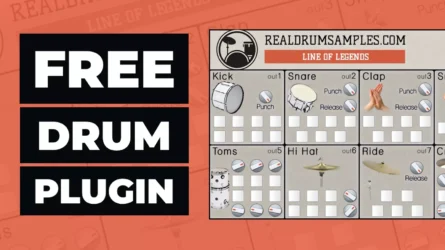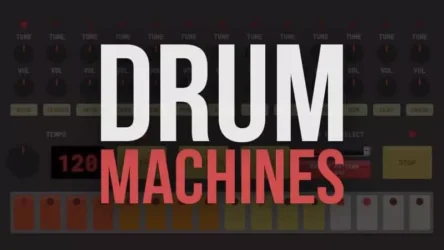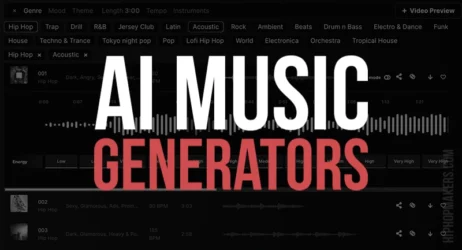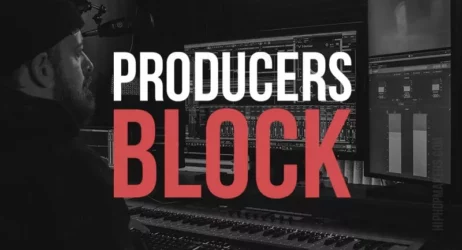This guide will answer what is an A&R in music ( Artist & Repertoire ), what they do, how much they make, and if they are still relevant today.
- What Is An A&R In Music
- What Does An Artist And Repertoire Do
- A&R vs. Management
- How Much Do A&Rs Make
- Do A&Rs Still Exist Today
- How Do You Become an A&R
- Do A&R Get Royalties
- What Degree Do You Need to Be An A&R
What Is An A&R In Music?
A&R stands for artist and repertoire. The A&R department of a record label is responsible for finding new talent ( Artists & Producers ) to sign with the label. They do this by scouting live performances and listening to demos submitted by musicians trying to break into the industry.
A&R also serves as a bridge between musicians and record labels or publishing companies; all activities involving artists before album release are typically regarded to be under the scope and obligation of A&R.
A record label’s A&R branch discovers new recording artists and introduces them to the business.
To explore talent, A&R personnel may travel to see new bands perform at clubs, festivals, and extravaganzas. Professionals in the A&R sector are required to understand market trends and to be able to identify musicians who will be financially successful.

As a result, A&R personnel are frequently youthful, and many are musicians, music writers, or record artists.
An A&R executive is permitted to issue a record contract, which is usually in the form of a ‘deal memo’: a brief informal agreement that creates an economic connection between the recording artist and the record label.
The original contract discussions are usually handled by competing industry attorneys hired by the composer’s management and the record label.
During contract talks, A&R reps are the musicians’ point of contact with the label.
They also play a significant role in artist development, such as how a band will market itself, sometimes selecting songs for the musicians to record if they don’t write their material, and laying the groundwork for the album and the band’s basic promotional foundation.
Rather than unwelcome demo recordings, A&R executives rely on the recommendations of trusted acquaintances, critics, and business contacts.
They also prefer musicians that perform in the same city as the record label’s headquarters.
According to Martin Heath, founder of Rhythm King Records and Lizard King Records, the A&R scene in the UK is more integrated than in the US, being particularly London-centric and embracing a very limited number of people.
In the UK, there is a herd mentality, but there are also some extremely varied signings.
Heath feels that in the United States, it is more common for A&Rs to wait until a band has some commercial success – having received other offers or reached a certain level of sales – before taking action, a strategy that frequently ends up spending more money.
What Does An Artist And Repertoire Do?
The primary job of an A&R rep is to always be on the hunt for top-notch talent. The motive behind it is to add fresh, promising talent to a record label or for a music publisher to sign.
An A&R is responsible for being involved from start to finish—from talent scouting and signing them through music development, marketing, and promotion.
Bringing talent to a record label, scheduling recording studio sessions, and acting as a liaison between emerging artists, producers, and other creatives are all examples of the roles of an A&R representative.
For a better understanding, the roles of an A&R representative can be grouped into three main roles.
- Talent acquisition and scouting.
- Administering the recording process of a record label.
- Aiding the marketing and promotion operations.
A&R reps work hand-in-hand with music artists and composers, liaising with a record label’s business elements and other musical skill-related elements.
Their responsibilities include listening to demos, matching artists with the correct producer, and providing creative feedback.
What’s the Difference Between A&R and Management?
Some people may consider an A&R rep to be the same as an artist manager in the artist management sector of a record company. However, there’s a difference between the two.
The primary role of a musician manager is to represent and advise a particular band or music artist professionally.
The A&R is a division inside a record label whose sole purpose is to recruit new talent and help the artistic progress of music artists, composers, lyricists, and songwriters.
Artist managers, in most circumstances, make decisions on behalf of artists. Sometimes these decisions are ones that an artist doesn’t want to make themselves.
On the other hand, an A&R rep makes managerial-level decisions and wields power to make decisions regarding the induction of a new artist.
Artist management involves birthing opportunities for talent, whereas A&R recruits new talent.
An A&R rep is always on the lookout for fresh talent and may attend different shows, read press releases, and listen to demo discs in search of talent.
An artist manager also has to make hundreds and thousands of sales calls and pitches to negotiate fresh contracts with other parties while simultaneously creating opportunities for the old and fresh talent.
Conversely, an A&R rep looks to negotiate new deals between the record companies and music artists.
How Much Do A&Rs Make? ( Salary )
According to ZipRecruiter, the mean yearly salary for a Music A&R in the United States is $45,887 as of October 26, 2021.
While ZipRecruiter reports yearly incomes as high as $83,500 and as little as $17,500, the bulk of Music A&R salaries in the United States now ranges from $30,500 (25th percentile) to $54,000 (75th percentile), with top earners (90th percentile) making $62,500.
The typical salary range for a Music A&R varies substantially (up to $23,500), implying that there may be several prospects for promotion and higher income depending on skill level, location, and years of experience.
Do A&Rs Still Exist Today?
Yes, A&Rs do exist today and are also in demand. Conventional A&R arrangements for bands, recording artists, or vocalists are still common at a major, established record label.
However, most musicians don’t necessarily need A&Rs to do their work for them. An artist or live performer can record their music and sell it straight to music fans.
A&Rs are far from being extinct, and even though musicians don’t entirely rely on them, A&Rs get paid handsomely for the services they offer to musicians.
Being an A&R representative is one of the most sought-after jobs in the music business, and many brands are still significantly invested in the position. And A&R continues to play a role in identifying talent worthy of lighting up a contemporary musical extravaganza.
How Do You Become an A&R?
A&R managers are senior personnel who must have extensive expertise in the recording industry. Most begin as undergraduate business reps, A&R organizers, or interns in another area of a record label or publishing company.
One way to start is by joining a lower-level record label and slowly making your way up the ladder at the label until you reach your destination.
These individuals advance to become A&R agents, where they seek promising new acts for managers to sign. Unfortunately, this structure tends to deny reps credit for identifying musicians, which is why individuals who want to become managers at large companies must be intelligent, determined, and ambitious.
The most successful A&R executives may amass substantial authority, influence the business, collaborate closely with their company’s A&R director, or even become an A&R board member or a record label executive.
There is no established educational qualification for an A&R rep because compulsory education is not often necessary for getting employed or progressing in the arts. Some of the most effective A&R reps do not have a degree, yet many record firms insist on having one.
Do A&R Get Royalties?
In big label deals, artists and repertoire strategists identify new talent to sign and get a few percentages points off record sales. However, A&R personnel are not the sole royalty earners for locating talent. However, apart from royalties, A&R still gets paid handsomely for their endeavors in finding promising talent.
Record labels pay royalties mainly to artists, publishers, and music composers. Music artists can get shares of 10% to 15%, depending on the signed contract.
On the other hand, publishers and composers may receive a royalty share of 30% or above.
What Degree Do You Need to Be An A&R?
Becoming an A&R doesn’t necessarily require you to have a college degree – basic education up to high school is enough for most record labels. However, major labels prioritize candidates with some formal education or qualification, though it’s not 100% necessary.
If you want to become an A&R executive, it’s suggested that in the beginning, you take your start in a low-level job in a record label or company and then work your way up the corporate musical ladder. If you don’t have a degree, it’s perfectly fine.
Nevertheless, being geared with a degree always helps. Your past participation in your school’s music-related extracurriculars also counts.
Many record labels and firms prefer a university or music school education. Business, business management, business administration, and accounting are all useful degrees if you want to pursue being an A&R executive.
A&R Overview
An A&R (artist and repertoire) is a person at a record label, often a producer or manager, who is responsible for talent scouting and signing new artists.
The Artists & Repertoire is a division of the record label that is entrusted with the task of finding talent and incorporating innovation into all commercial developments accelerated by artists. A&Rs are often seen as the glue that holds record labels and artists together.
In the fast-paced, digital era of the music business, the role of an A&R representative is crucial for artist development and career trajectory.
Being the key player within a record label, A&Rs act as talent scouts in the music industry, spending time listening to new music and scouting talent. Their keen ear and refined taste enable them to identify unsigned artists with potential and offer them a shot at a music career with major labels or independent labels.
Just like a talent scout in sports, an A&R in the music industry is responsible for finding artists, signing artists, and overseeing the recording process.
This includes everything from the creative musical process to the marketing of songs to a target audience. They are the ones who determine whether labels sign artists, and their direct experience and hands-on approach are invaluable in this competitive industry.
In recent years, the traditional role of an A&R has evolved with the advent of streaming platforms and the growing online audience.
In this constantly evolving industry, A&Rs now find artists through a variety of channels, including the Internet and streaming services, especially platforms that feature new talent.
Communication skills are paramount in this role, as A&Rs must effectively work with many artists, guiding their artistic vision and image while also considering the commercial demands of the music industry.
In conclusion, an A&R manager’s role in the music industry is multifaceted, involving talent scouting, artist development, and overseeing the recording process. They play a pivotal part in signing artists to record labels, working closely with musicians throughout their careers.
As the music business continues to evolve in the digital era, so too does the role of an A&R, which is increasingly focused on discovering new talent from the internet and streaming platforms.
The success of most artists heavily relies on the expertise and dedication of these individuals, who play a crucial role in the global entertainment industry.
I hope you found this information on A&Rs in music helpful.




